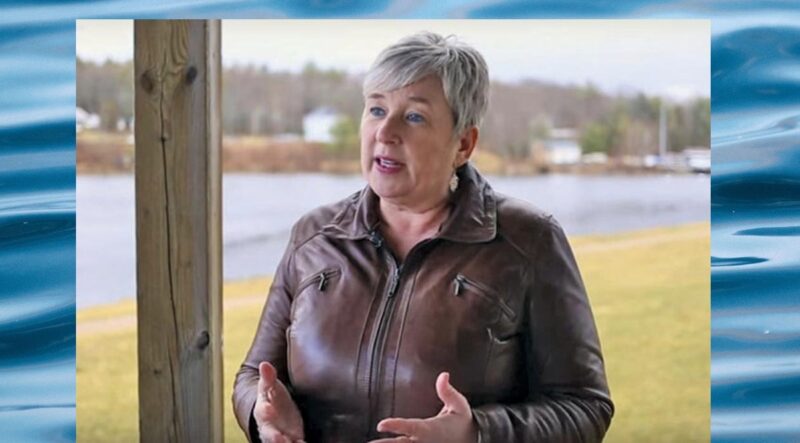Minister ousted after controversial decisions on fisheries, aquaculture
Bernadette Jordan governed with a lack of clarity, bowing to demands from anti-aquaculture activists on Canada’s West Coast while being ineffective in the conflict between commercial fishers and Mi’kmaq lobster fishers in Atlantic Canada, say seafood industry observers
By Fabian Dawson
SeaWestNews
Liberal Bernadette Jordan who alienated the West and angered the East with her controversial decisions about fisheries and aquaculture in Canada, won’t be returning to Ottawa as an MP.
After a two year stint as minister of Fisheries, Oceans and the Canadian Coast Guard, Jordan lost her seat of South Shore—St. Margarets to Rick Perkins of the Conservatives in Canada’s 44th election.
She was first elected in 2015, in her Nova Scotia riding, and was promoted to cabinet in early 2019 and was one of two Liberal ministers ousted on polling day. The other was Maryam Monsef, the candidate for Peterborough—Kawartha who served as the minister of rural economic development in the last Parliament.
“Fisheries is always tough because you are the regulator and oftentimes you have to make decisions people don’t like,” Jordan told The Chronicle Herald after conceding defeat.
“That goes for everyone. Would I do something differently? That’s like how long’s a piece of string. It’s a very tough situation and I wish the next fisheries minister the best of luck.”
Jordan’s tenure as minister was marred with controversy ever since joining Justin Trudeau’s cabinet.
Seafood industry observers told SeaWestNews, that she governed the Department of Fisheries and Oceans (DFO) with a lack of clarity, bowing to demands from anti-aquaculture activists on Canada’s West Coast while being ineffective in the conflict between commercial fishers and Mi’kmaq lobster fishers in Atlantic Canada.
The Atlantic Canada conflict remains in a stalemate with Jordan saying in March the Mi’kmaq would have to follow federal regulations — a position that Sipekne’katik Chief Mike Sack rejected. Sack now refuses to deal with Jordan or her office, according to the CBC.
In British Columbia, Jordan, bowing to demands from the anti-salmon farming lobby group, announced her decision last December to oust salmon farmers from BC’s Discovery Islands within 18 months.
In addition to ignoring her own scientists, who found that the Discovery Island farms posed less than a minimal threat to wild stocks, internal government documents show she also rebuffed her deputy minister, Timothy Sargent, who recommended a more coordinated approach for the decommission of salmon farms in the area.
In its entirety, Jordan’s unexpected Discovery Islands’ decision will see BC losing almost $390 million in annual economic output with $87 million less in annual salaries and benefits, and 1,535 fewer jobs, mainly in coastal communities of BC.
Despite calls for a more orderly transition of ocean-based net pens and a plan to support the economies of North Vancouver Island, which would be ravaged by the decision, Jordan never responded to requests for meetings with local community leaders.
The former minister, who was ordered by the Federal court to “turn back the clock” on her sudden 2020 pre-Christmas decision and allow the transfer of fish pending a final ruling, also came up with new policies to thwart what the court had ordered her to do.
The fish farmers have applied for a judicial review of the former minister’s decision after being unable to get any clarity on a series of follow-up policy changes ordered up by Jordan.
“Initially, we had believed that the Liberal government of Canada was one which built on the principals of inclusivity and was led by a belief and trust in Canadian-led research and science, as well as fundamental support for further truth and reconciliation in Canada,” said David Kiemele, Cermaq Canada’s Managing Director, in a pre-election statement.
“From where we stand today, it appears that the decisions…are not in fact supportive of these positions but are instead aimed at securing urban Liberal votes,” he said.
“The inability of Minister Jordan to provide an adequate statement as to why she has denied our requests, to us, points to motives outside of science and social license and likely towards securing urban votes as we head into an anticipated late-summer election.”
During the election campaign activists pushed federal election candidates, including Jordan to support the immediate transition of maritime aquaculture operations in BC to onshore tanks.
They asked candidates to publicly pledge “support for a continued transition away from open net pen salmon farms in the coastal waters of British Columbia, with appropriate incentives to transition the industry to land based closed containment aquaculture by 2025.”
The campaign, costing about $100,000, was paid for by a group based out of Sointula, BC, called the Canadian Coastal Research Society, whose directors list no fisheries science credentials.
(Image of former Fisheries Minister Bernadette Jordan, courtesy Government of Canada)

